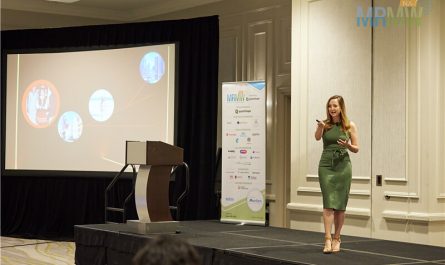For quite some time, online concept testing has relied on tedious, repetitive batteries of cognitive scale questions to determine “winning” concepts. Respondents quickly succumb to fatigue when faced with a wall of matrix questions though, and never-ending Likert scales provide little opportunity for an individual to express how they really feel in an unstructured manner.
This is not to say cognitive questioning is wrong or that Likert scales have no place in market research, but the overuse and reliance on these tools can mire a study and produce Type I errors. Researchers too frequently expose respondents to new products, ask how likely they are to purchase it, and take the response at face value.
The problem with this approach is that humans are simply bad at predicting what they will do. As our needs and desires shift so does our behavior. These changes often go unnoticed in day-to-day life, but behavioral science has identified the strong impact they have on the decisions we make. Many studies have also shown the lack of relationship between a participant’s response to purchase intent questions and their actual behavior. A respondent might provide an answer when asked to predict their actions 30 days into the future, but the validity of this response is as aspirational as the question itself. Humans are irrational beings, yet we try to predict our own behavior with rational questioning.
So how do we overcome this limitation? Enter System 1 research techniques. The term System 1, coined by Daniel Kahneman in 2011, refers to the “automatic” way of thinking that drives most of our decision making. The System 1 brain is responsible for processing the easy choices we make on a daily basis, while the System 2 brain handles the more rational thinking processes in moments that call for increased cognitive effort. Our brains make hundreds of “fast” System 1 decisions an hour, from selecting a Coke or Pepsi at the supermarket to grabbing a glass of water before the System 2, or slower brain, can even realize that the body is thirsty. The System 2 brain is more effortful, jumping in when we need to solve complex math problems for example.
 The disparity between System 1 and System 2 begs the question: if our automatic brains make most decisions then why do traditional concept tests ask questions that only our System 2 brains can answer? Humans don’t make in-store purchases because they evaluated their own desire for a Snickers bar on a 1 to 7 scale. Our automatic brain goes for the Snickers because deep down we feel we’ve earned one by being good in other areas of our diet, or simply because we know the treat will bring joy.
The disparity between System 1 and System 2 begs the question: if our automatic brains make most decisions then why do traditional concept tests ask questions that only our System 2 brains can answer? Humans don’t make in-store purchases because they evaluated their own desire for a Snickers bar on a 1 to 7 scale. Our automatic brain goes for the Snickers because deep down we feel we’ve earned one by being good in other areas of our diet, or simply because we know the treat will bring joy.
System 1 market research approaches tap into these emotions that influence our behavior and ultimately drive decision-making. Identifying and leveraging these emotions on a nonconscious level is the key to System 1 market research, yielding more robust concept evaluations that are no longer limited to scales and text, but also rich media such as images, videos, and digital experiences.
Instead of asking more questions, we should aim to ask the right questions. A single well-placed nonconscious measurement has the potential to uncover more depth and nuance than any set of cognitive scale questions, no matter how extensive.
It’s time market research caught up with our understanding of behavior. No longer can we rely on the output from just one metric to determine the winner in concept testing. Market research should leverage both System 1 and System 2 measurements to uncover the emotional and rational drivers that actually dictate what we do, and understand why we do it.
To learn more about Protobrand’s System 1 approach to understanding what informs and drives behavior, click here.”











 by
by 

